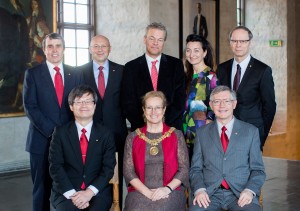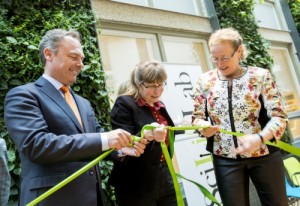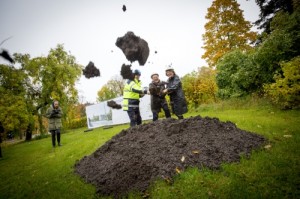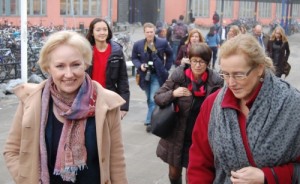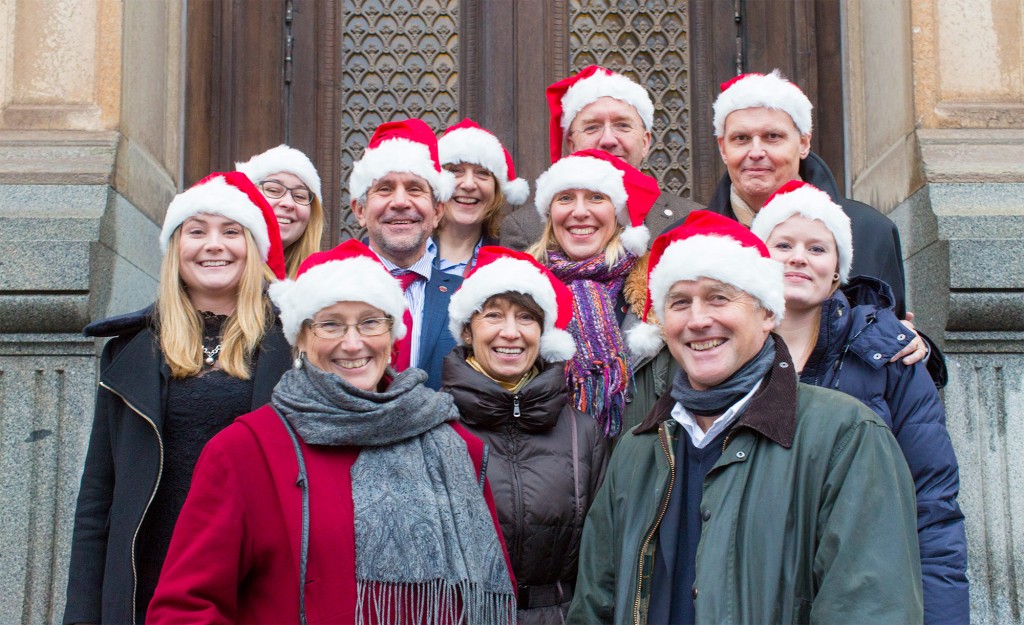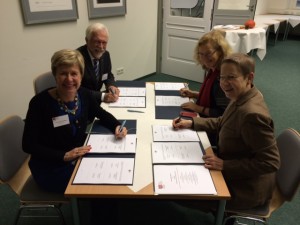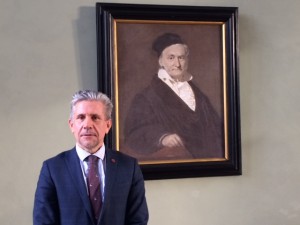2014 has been a very successful year for Uppsala University.
During the year Uppsala University climbed up the rankings and is now, according to all three leading global lists, among the 100 most distinguished universities worldwide. Uppsala is the higher education institution (HEI) in Sweden that receives the largest total sum in grants awarded by the Swedish Research Council, and we rank in the top for grants from the Wallenberg Foundation and the European Research Council as well.
In December the European Institute of Technology announced the winners of its 2014 Call for Knowledge and Innovation Communities (KICs) Proposals. Uppsala is part of both the two selected pan-European KIC consortia. One is InnoLife (which aims ‘to promote entrepreneurship and develop innovations in healthy living and active ageing’) and the other is RawMatTERS (where ‘TERS’ stands for ‘Tackling European Raw Materials Sustainability’).
Since the summer, Uppsala has also been coordinating two new Erasmus Mundus programmes, focusing on South Africa and Asia. Overall, application pressure to enrol on our study programmes is at a record high and the number of international students is steadily growing.
Major events
The year has meant welcoming numerous visitors to Uppsala. The first meeting of the Uppsala Health Summit was held in June. In September, Magna Charta Observatory held its annual conference in Uppsala, for the first time ever outside Bologna. And it has been a while since so many Nobel Prize laureates chose to come and lecture in Uppsala in December.
The new hub for SciLifeLab Uppsala, Navet, opened up in April. In October, the construction of the new Segerstedt Building, which will house university administration and student services, began. New agreements have been prepared for funding the next phase of the FREIA Hall (Facility for Research Instrumentation and Accelerator Development), where we are developing technology for the European Spallation Source (ESS) initiative.
We have embarked on development projects on e-learning, active student participation, and cultural heritage as an educational resource. We have also initiated a follow-up of the Quality and Renewal (KoF) 2007 and 2011, to obtain a point of departure for discussions of a possible forthcoming research evaluation in 2016.
Simultaneously, unrest in the national political leadership has affected us during the autumn. The abrupt disappearance of the special merger funding for Campus Gotland in the government budget proposals in October was surprising and disturbing. After successful political mobilisation, we were given guarantees that this mistake would be corrected, but the Government’s budget eventually failed to get parliamentary support. At the time of writing, we are therefore back where we started. The original merger funds will remain in 2015 and, it is hoped, 2016 as well. One positive side-effect of this budget chaos is the highly favourable publicity Campus Gotland has gained during the autumn. All those involved and concerned – the Ministry, the region and the sector – have commended the merger and underlined its beneficial effects to date.
Challenges
We are now preparing for 2015, and there is much to which we can look forward. A new national quality system for education is in the making. The investigator Harriet Wallberg, who is also Sweden’s University Chancellor, has proposed henceforth placing the HEIs in charge of shaping their own systems of educational evaluation. This change will be in line with what we have long wished for. It does not mean that the evaluation will be less stringent. On the contrary, establishing locally adapted systems that both control and develop the quality of our multifaceted range of study programmes will call for major efforts.
Other key issues that will occupy the leadership of the University and our faculties when we get together again after the holidays are:
- further planning for Ångström Phase IV
- conclusion of negotiations for a new regional Agreement concerning Cooperation on Medical Education and Research (‘ALF-avtalet’)
- monitoring and influencing the plans for a new national evaluation and resource distribution model for research
- paving the way for the continued development of our ‘strategic research areas’.
Implementation of the University’s new mission statement, ‘Goals and Strategies’, is another vital task. The key strategic discussions on the future challenges to our education research are being held – and will be held – in collegial forums in the various parts of the University. The goals and strategies simultaneously remind us that Uppsala University, in all its breadth and diversity, is one university with shared basic values and joint overall objectives.
This university’s successes are founded in excellent inputs on the part of all our highly competent and committed employees and students. Together with the broader university management team, prepared for the upcoming holidays in the picture below, we wish you all a joyful and refreshing break from work over Christmas and the New Year!
Eva Åkesson
Vice-Chancellor
Anders Malmberg
Deputy Vice-Chancellor

